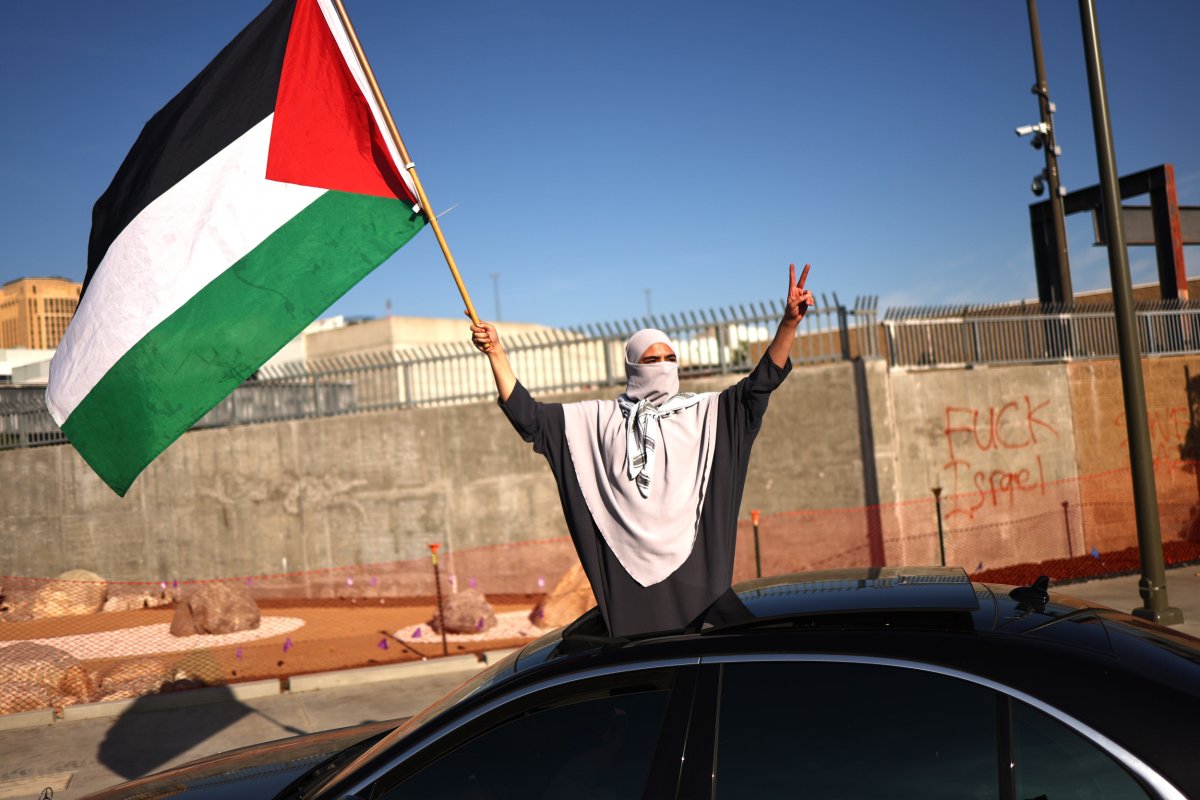In 25 years of advocating for survivors of sexual violence, every woman I have worked with has feared that speaking up publicly about their attack will trigger a backlash. I know that fear personally, as I was raped and almost lost my life in an attack that occurred only a few months before I was crowned Miss World 1998.
Despite the physical and emotional toll of my attack, there were those who doubted my version of events, or blamed me. I was only 18. Thankfully, there were people who gave me the strength to persevere and ultimately secure my attacker's conviction.
In turn, I have dedicated my life to standing up for other women, working with individual women as well as advocacy organizations over the years to empower survivors to speak out—no matter their identity. I never imagined that these same groups would one day turn their backs on women in their hour of need, and a blind eye to the backlash they are experiencing from some elements of society.

On Oct. 7, Hamas' terror squads systematically raped, mutilated, murdered and kidnapped Israeli women in their homes and in the fields of a music festival. We have heard from released hostages that women have been raped in captivity, and there are fears that some of the dozen or so women who remain captive in Gaza today are now pregnant as a result.
Instead of sympathy and solidarity, the attacks have been met with a vitriolic backlash of denial and glorification. Antisemitic misogyny has been normalized by the free use of phrases like "by any means necessary" being shouted on the streets of Western cities. Meanwhile, taunting social media posts tell Israeli women that the female hostages will have been happy to have been kidnapped by "real men", and twisted romantic fanfictions have been written about the terrorists and the hostages. The implication is clear—for some, it has become acceptable or even righteous to rape, murder, and kidnap Israeli women.
In the face of this naked aggression, organizations that claim to support women—all women—have largely remained silent. If they spoke, it was to demand more evidence, share the blame, or cast doubt. The calls to violence on Western streets were ignored. UN Women eventually acknowledged that sexual violence was committed by Hamas, but their weak statement did nothing to turn back the tide of venom that has washed into the mainstream. A new United Nations report largely confirms what we have all known for five months, but when it was presented, many of the journalists present sought to deny or downplay its findings. One female journalist asked if the rape of Israeli women was being "weaponized".
Normalizing this kind of rhetoric endangers all women, but it has a particularly chilling effect on Jewish women. In February, I gave a talk to Jewish students at Harvard University on the subject of women's rights in the aftermath of Oct. 7. The event was targeted by an intimidating boycott campaign, and some of the Jewish students who attended the event told me that they feared social and academic penalties if their attendance became known. What started as a speech turned into a conversation about the shared trauma of being a Jewish woman today. Instead of focusing on their studies and social lives, these students are contending with death threats and being forced to hide their identities from professors and classmates. In this environment I question whether a Jewish woman on campus would be treated equally or supportively should they become a victim of sexual violence today.
What saddened me even more was that there was no counter-protest from the wider student body that night. No allies showed up for Jewish women who were coming to bear witness and find strength in each other. As always with antisemitism, a problem with Jews is symptomatic of a deeper rot, and if antisemitic misogyny is given a social pass for too long, other groups of women will soon find themselves in the position of being too politically costly to defend as well.
The critical issue of the remaining female hostages is still at the front of Jewish and Israeli women's minds. From standing up to Hamas to standing for Jewish students at Harvard, we need allies to support us and to fight back against the social backlash we have seen online and in our streets. Women are stronger when we stand together, and this is not the time to look the other way.
Linor Abargil is an advocate for women's rights and works as a lawyer, actress, and model. She is also a former Miss World.
The views expressed in this article are the writer's own.
Uncommon Knowledge
Newsweek is committed to challenging conventional wisdom and finding connections in the search for common ground.
Newsweek is committed to challenging conventional wisdom and finding connections in the search for common ground.
About the writer
To read how Newsweek uses AI as a newsroom tool, Click here.






